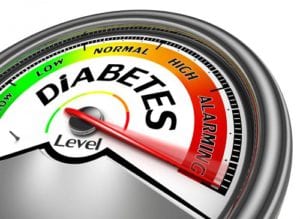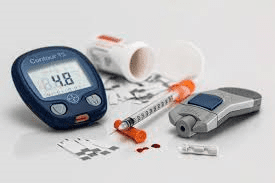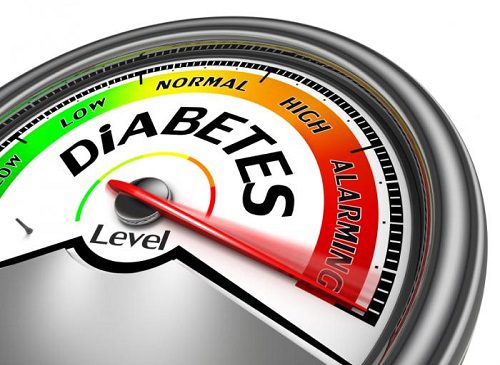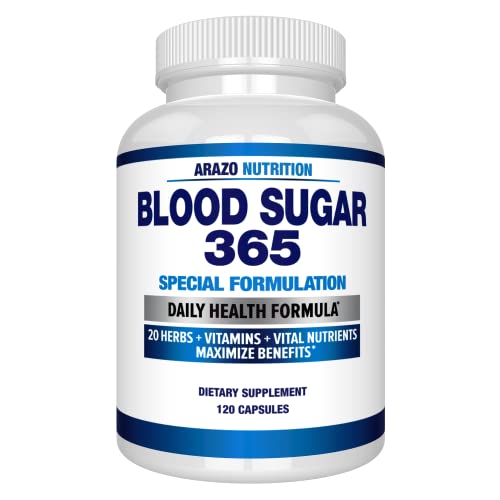Keeping your blood sugar levels in the range advised by doctors can be daunting at times. What is a Dangerous Blood Sugar Level? You don’t want your blood sugar level getting to 180 and above. When your blood sugar level is too high or too low, the body is overpowered, and you become very sick.
How can You Avoid High Blood Sugars?

In case any of these two happen, you are deemed to be in an emergency, and if not treated fast, it can lead to fatalities. Dangerous blood sugar level is when the blood sugar balance shifts to one side and it’s either too high or too low.
When you have too much blood sugar in your body, this condition is also known as hyperglycemia while having too little sugar is known as hypoglycemia.
These two are dangerous conditions, but the most severe is hyperglycemia. If not solved in an emergency room and as soon as possible, it can lead to death.
According to the world health organization, high blood sugar level is when:
- Blood glucose levels are higher than 7.0 mmol/L on a fasting period
- Blood glucose level is higher than 11.0 mmol/L after meals
The body requires glucose to function properly but at balanced levels and balancing is done by the pancreas. Your body cells depend on glucose for energy. When the blood sugar level is too high, the body isn’t using the glucose properly, or it doesn’t make insulin which is used to transport the glucose to the body cells through the bloodstream.
Your body gets glucose from the foods you eat and specifically from the foods that contain carbohydrates. Fruits, potatoes, milk, bread and rice are some of the most significant glucose sources in a standard diet. These are fairly common, right?
When you consume these foods, the body breaks down the carbs into glucose which is then transported to the body cells by insulin via the bloodstream. The muscle cells are some of the cells that require a lot of glucose to function correctly.
What happens with people who have hyperglycemia is they don’t have enough insulin in the body. They depend on insulin shots, medication and proper meal planning to keep the glucose level in control.
For example, people with hyperglycemia have to take enough insulin before meals to help with the glucose they will ingest. If not, the glucose in their body can rise to dangerous levels leading to hyperglycemia emergency.
Hyperglycemia and hypoglycemia are both dangerous, but hyperglycemia is not good. Reason being, when the blood sugar levels exceed 7.0 mmol/L for a long time, it starts to damage internal body organs and the symptoms might not be seen or might not even develop until the glucose levels exceed 11.0 mmol/L.
[elementor-template id=”11962″]
What are the Causes of Hyperglycemia?
There are two main causes of rising or high blood sugar levels in the body:
- Loss of insulin-producing cells in the pancreas
- If the body develops resistance to insulin

If you are diagnosed with hyperglycemia, it is advised that you keep your blood sugar levels in check especially after meals.
You are also advised to keep off foods with high glucose or sugar levels to reduce the chances of high blood sugar levels that can lead to an emergency.
Some of the immediate reasons that cause hyperglycemia include:
- Missing a dose of your prescribed diabetic medication or insulin
- Eating a lot of carbohydrates that the body can’t handle
- Mental and emotional stress like anxiety or surgery
These are the causes of hyperglycemia in people who are already diagnosed with the condition and medication provided to help keep the blood sugar levels in balance.
Diabetics diagnosed with hyperglycemia are in more danger as compared to those diagnosed with hypoglycemia. With hypoglycemia, cases of emergency are rare, and if an incident occurs, you can control it before you get to the emergency room. But of course you never want it to get to that point.
Low blood sugar level can be controlled by giving the patient a sugar or glucose solution or fruits with high amounts of sugar, and they will stabilize before you get to the ER. With hyperglycemia, the ER is the first stop you make because getting rid of blood sugar is much harder and is mostly controlled by insulin shots.
Check Out the Video Below for Your Blood Glucose Target Range
Dangers of High Blood Sugar Levels
Ever heard of the term diabetic coma? This is a life-threatening diabetes complication caused by either high or low blood sugar levels. The condition causes unconsciousness, and the diabetic becomes unresponsive to sights, sound or other kinds of stimulation. You certainly do not ever want to get to this stage at all!
In a diabetic coma, you are alive, but you can’t respond to anything or awaken, and this is mostly caused by lack of emergency treatment in case of a diabetic emergency. If the diabetic coma is left untreated, it can be fatal, but luckily, the ER can put an end to it all. Patients are always advised to be aware of their condition all the time and take medication as prescribed.
Patients are also advised to keep what they eat in check against their underlying condition and even inform a loved one or relative of their condition. This way, in case an emergency occurs, the patient can reach out to the person who won’t freak out but help them as fast as possible. This sure as heck makes sense, don’t you agree!
Symptoms of Hyperglycemia
If you are a diabetic, the idea of going into a diabetic coma can be so scary. However, steps can be taken to prevent it, and it all starts by flowing the prescribed diabetes treatment and not missing any dose. Before you go into a diabetic coma, you are most likely going to experience some symptoms. These include:

- Frequent/increased urination
- Increased thirst and hunger
- Loss of weight
- Blurred vision
- Fatigue or weakness
- Nausea and vomiting
- Very dry mouth
- Shortness of breath
- Rapid heartbeat
- Stomach pain
If you have any of these symptoms combined, you might be experiencing hyperglycemia which can be dangerous if not treated. The first 3 are the main symptoms and diabetics are informed of how to watch out for them and keep their insulin in check in case the symptoms occur.
How Severe is Hyperglycemia?
Hyperglycemia is so serious in that it can cause a diabetic coma and can lead to fatality. When the blood glucose levels stay high for a long time, it can lead to short term or long term complications which we discuss next.
Short Term Complications
Very high blood sugar can cause short term complications such as ketoacidosis which is a very dangerous complication. Most of the diabetics who are dependent on insulin shots are more prone to this complication. The risk of getting ketoacidosis is higher if the blood glucose levels rise past 15 mmol/L, which can happen in case of a prolonged period of illness or an insulin dose, is missed.
What is Ketoacidosis and How Does it Happen?
Hyperglycemia if left untreated can lead to ketoacidosis. This is a complication that happens because the body cells without glucose use the ketones (toxic acids) in the body as a source of energy instead of glucose.
This happens because the body has glucose, but no insulin to take the required glucose to the body cells. When the ketones build up in the blood, ketoacidosis will happen, leading to a diabetic coma or sometimes death.
People with diabetes are advised to test their ketone levels regularly which can be performed in two ways. The test can be done using blood or urine. Ketone testing is part of self-monitoring of diabetes and doctors always provide information about it including prevention and what to do in cases of abnormally high ketone levels.
Hyperosmolar hyperglycemic nonketotic syndrome is another condition caused by hyperglycemia. It is a rare condition, but everyone should be aware of it and understand how to handle it in case it occurs. It mostly happens to sick and elderly people when the body sugar levels rise and the body tries to get rid of the excess blood sugar through urination. This, in turn, dehydrates the body, and you become thirsty.
Unfortunately, it’s sometimes difficult to re-hydrate the body as required when you are sick. If you don’t re-hydrate, the blood glucose levels continue to rise and this might send you into a coma. To avoid this, diabetics are advised to keep a close watch on their blood sugar levels when sick.
Long Term Complications
Having your blood sugar levels high for extended periods can result in organ damage which leads to other health problems often referred to as long term complications of diabetes. Some of these include:
- Stroke
- Nerve damage
- Heart attack and other cardiovascular complications
- Eye damage
- Slow or zero healing wounds
- Kidney damage
Treatment of Hyperglycemia
After knowing and understanding what hyperglycemia is and what causes it, it’s now time to understand how to treat it. With hyperglycemia, you can only work towards preventing it.
If you are already diagnosed with diabetes and your blood sugar levels are often high, there are things you can do with information from your doctor and keep the levels in the required range preventing hyperglycemia.
Here are some of the things your doctor might suggest that you do:

Medication
Your doctor can recommend medication to help adjust your insulin or adjust when you take it to help prevent hyperglycemia. Following the medication strictly keeps your blood glucose levels balanced reducing the risks of hyperglycemia.
Meal Plan
Avoiding hyperglycemia has a lot to do with maintaining a healthy diet and an appropriate meal plan. This includes watching your sugar and carbohydrates intake, eating often and staying hydrated, reducing alcohol intake and eating foods rich in vegetables, whole grains, and fruits. Talk to your dietician or doctor if you have a problem planning your meals accordingly.
Exercise
Even for those who don’t have diabetes, regular exercise is important. A healthy level of activity helps keep your blood sugar levels at the normal range.
Note: If you develop hyperglycemia and ketones are present in your urine, don’t do any exercises. Ketones in your urine combined with exercise can cause your blood sugar to rise higher.
Preventing Hyperglycemia
Preventing hyperglycemia is easy if you control your diabetes. This includes knowing and understanding all the early symptoms no matter how small or subtle. It also includes:
- Taking medication as prescribed
- Managing your stress levels
- Avoid too many calories consumption. Watch what you eat.
- Maintaining a healthy and regular level of activity.
- Consuming the right types and amounts of carbohydrates.
- Avoid missing any doctor’s appointments.
[elementor-template id=”11962″]
In Conclusion
What is a Dangerous Blood Sugar Level? Now you know the answer to this question. Having diabetes is not a death sentence. It might not be a disease like any other, but you can survive and live long so long as you manage your diabetes. Be proactive and take care of yourself.
Remember the body requires glucose for the cells to function properly. This means you can’t eliminate any sugar intake in your body in fear of getting diabetes.
The best thing you can do is try and manage what you eat if you don’t have diabetes already. Make sure you eat balanced amounts of carbohydrates and eat the proper types of carbs from fruits and also ensure you take a lot of vegetables.
Hyperglycemia is also not a death sentence. It is a condition brought by dangerous blood sugar levels in the body and is manageable. However, in cases of emergency, it can be fatal especially if it leads to a diabetic coma.
Knowing what to do in cases of emergency is really helpful and can save a life. Most of the time, the ER saves lives for diabetics with hyperglycemia as it is tricky to control as compared to hypoglycemia.
To stay safe and steer away from all these and other complications, diabetics are advised to maintain their blood glucose levels which can be done using medication like insulin shots and other tablets. Also, make sure you take your medication as prescribed without missing doses.
If you are not diabetic, eat a lot of fruits and vegetables and engage in regular exercises. This way, the amounts of glucose produced in your body is controlled by what you eat, and the rest is used up when you exercise.
Check Out Below the Best Way
to Lower Your Blood Sugar Fast
- Amazon Kindle Edition
- Rothchild, Sascha (Author)
- English (Publication Language)
- 336 Pages - 04/19/2022 (Publication Date) - G.P. Putnam's Sons (Publisher)
- ✅ QUICK AND EASY TO USE: Care Touch blood sugar test kit delivers results in only 5 seconds with just a 0.5µL blood sample. There is no programming needed since our blood sugar monitor kit automatically recognizes batch codes encrypted on Care Touch glucose test strips. Our state-of-the-art glucometer kit with strips and lancets includes single-touch strip ejection, so you can hygienically remove used diabetic test strips.
- ✅ EASY DIABETIC MONITORING: The blood sugar monitor kit with strips is capable of saving up to 300 readings. The blood glucose test kit also provides a continuous 14-day average of your readings, making glucose monitoring easy for you and your healthcare provider.
- ✅ PORTABLE AND HASSLE-FREE: The diabetic testing kit comes with a handy glucometer case, which means you can check your blood sugar level at home or anywhere else while staying organized. The 10-depth lancing device and lancets will help make blood sugar testing almost painless and hassle-free.
- ✅ COMPLETE DIABETIC SET: The glucose meter kit with strips and lancets includes: (1) Care Touch Blood Sugar Meter, (100) Blood Glucose Test Strips for diabetes, (1) Lancing Device, (100) Lancets for diabetes testing, (1) 3 Volt Lithium Battery, (1) Glucose meter case for your blood sugar tester and diabetic supplies
- ✅ WE CARE BECAUSE YOU CARE: You care about your health, and we care about you. Care Touch is committed to providing the best quality blood glucose monitoring systems. Our care doesn’t end when your sugar tester diabetes kit arrives at your door. We’re fully dedicated to your satisfaction. If you have any questions or concerns about your glucose monitor kit with strips and lancets - contact us at any time.
- Amazon Prime Video (Video on Demand)
- English (Playback Language)
- English (Subtitle)
- PUREHEALTH RESEARCH - Blood Sugar Formula 3 Bottles
- MANUFACTURED in the USA! 365-DAY SATISFACTION GUARANTEED!
- A DOCTOR-APPROVED NATURAL FORMULA. Seventeen potent ingredients, each scientifically proven to have a significant effect at helping balance your glucose levels, improve glucose sensitivity, protect delicate cells from free radicals, and energy
- HIGH POTENCY. PureHealth Research experts scientifically enhance CHROMIUM with the Vitamin C, E, Mulberry Leaf, Bitter Melon, Cinnamon, L-Taurine, Berberin and other ingredients which are proven to help you support healthy blood glucose levels
- ONE CAPSULE DAILY, THREE BENEFITS: supports healthy sugar and carb absorption, supports insulin levels, supports cardiovascular health
- Scientifically formulated; great care was put into combining just the right amount of 20 different ingredients into a premium formula designed to support healthy blood sugar levels
- High potency support for 365 days a year; the unique combination in this blend is crafted to help support healthy glucose absorption and glucose production by your body; contains Gymnema, Alpha Lipoic Acid, Yarrow, Licorice, Cayenne, Banaba, Guggul, Bitter Melon, Juniper Berry, White Mulberry, L-Taurine & more
- One capsule twice a day, five benefits; (1) supports normal blood sugar levels; (2) supports weight control and energy; (3) supports healthy sugar and carb absorption; (4) supports insulin levels; (5) supports heart health; daily support for healthy blood glucose levels, 365 days a year
- Reliable; made in a GMP certified facility in America and third party safety tested for purity
- Great value for money; 120 vegetarian capsules for a 60 days supply
Last update on 2022-06-23 / Affiliate links / Images from Amazon Product Advertising API










That’s a very informative post. Diabetes is a very predominant disease these days found in almost every household, worldwide. Suggestions for its prevention given by you are awesome and not difficult to practice.
I enjoyed reading your article thoroughly, it’s very educational for me. I’ll take it’s printout so that I may not forget this stuff when I need them.
Thanks a lot for sharing your in-depth knowledge with us all. It will be very useful to many.
Hey Akshay 🙂
Thank you! Diabetes and high blood sugars can really take a toll on your body.
My goal is to spread the word about preventing and treating diabetes the natural ways.
You don’t want your blood glucose levels getting too high. Knowledge is power and it’s important to prevent this from ever happening.
And if you do have diabetes, you know how important it is to check your glucose levels regularly!
Thank you for sharing! 🙂